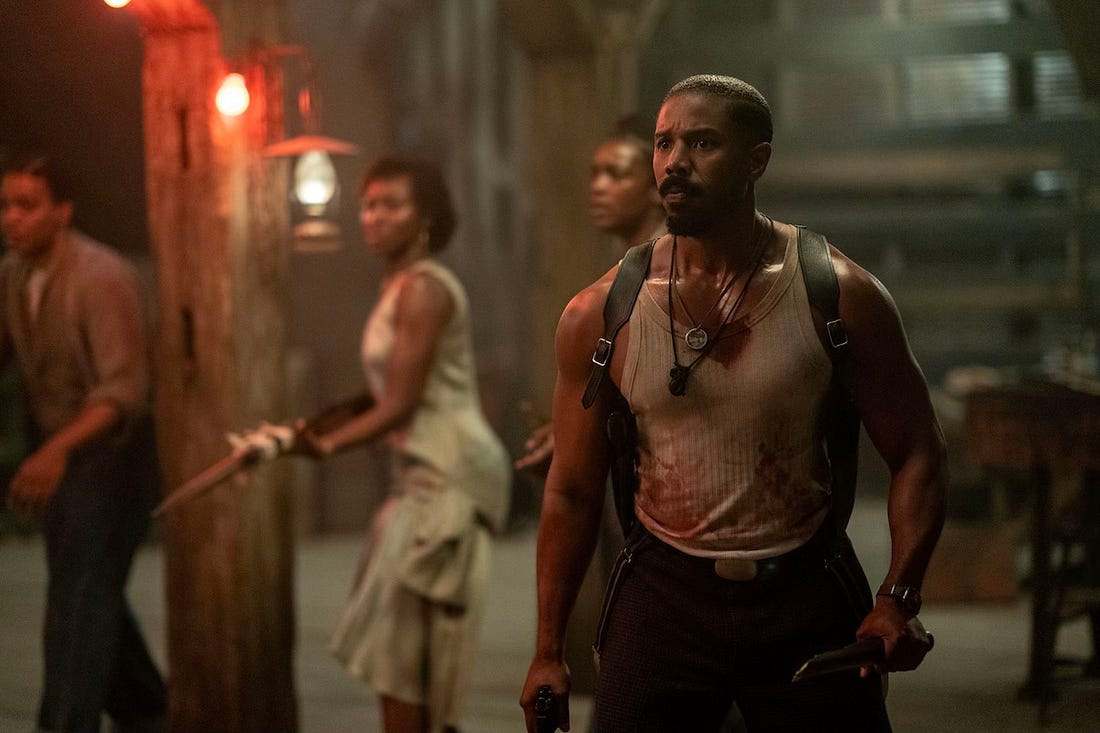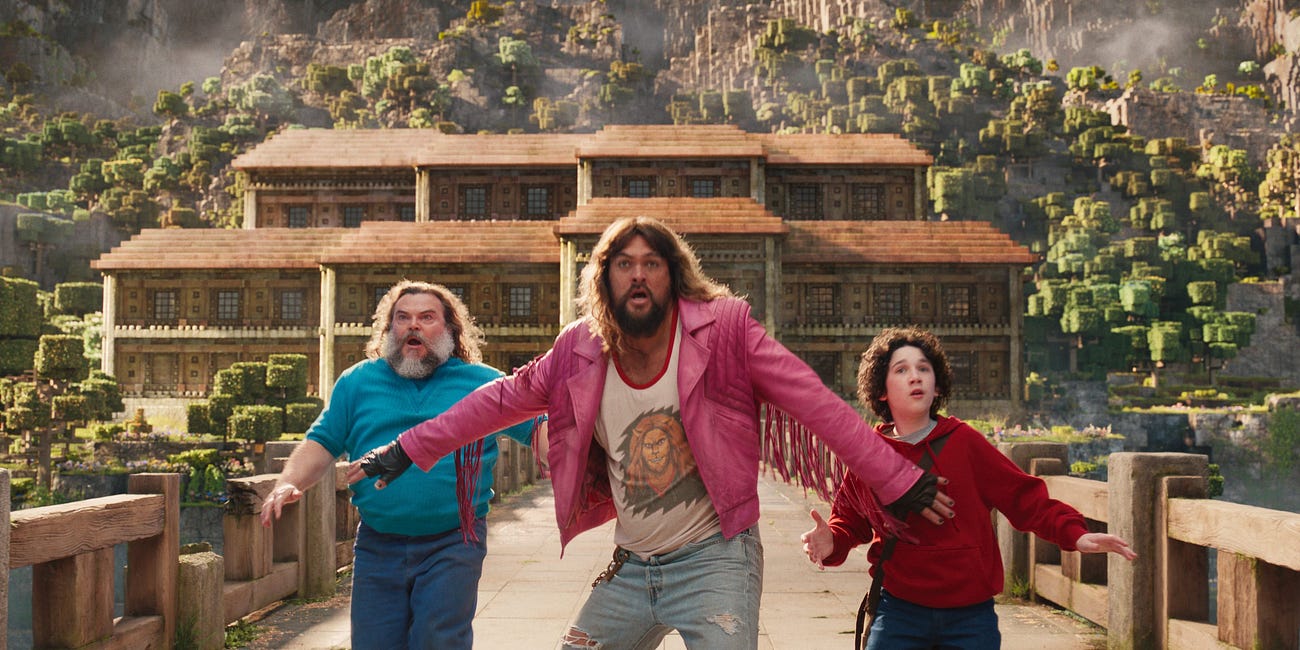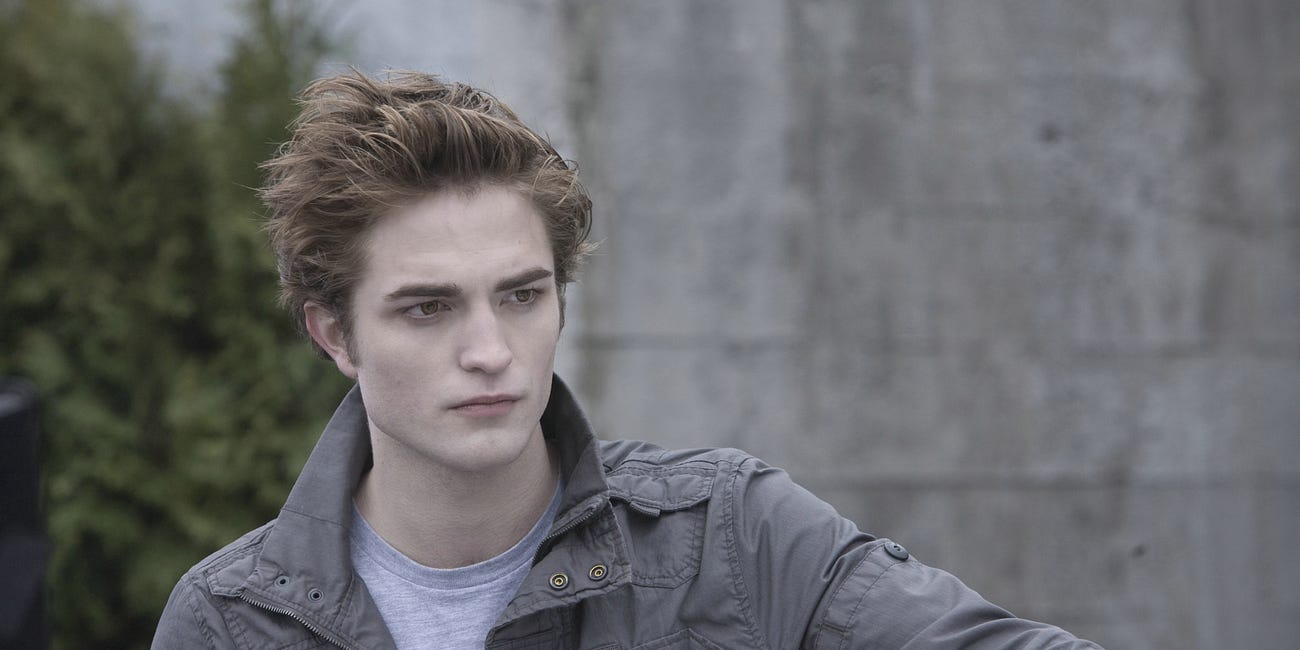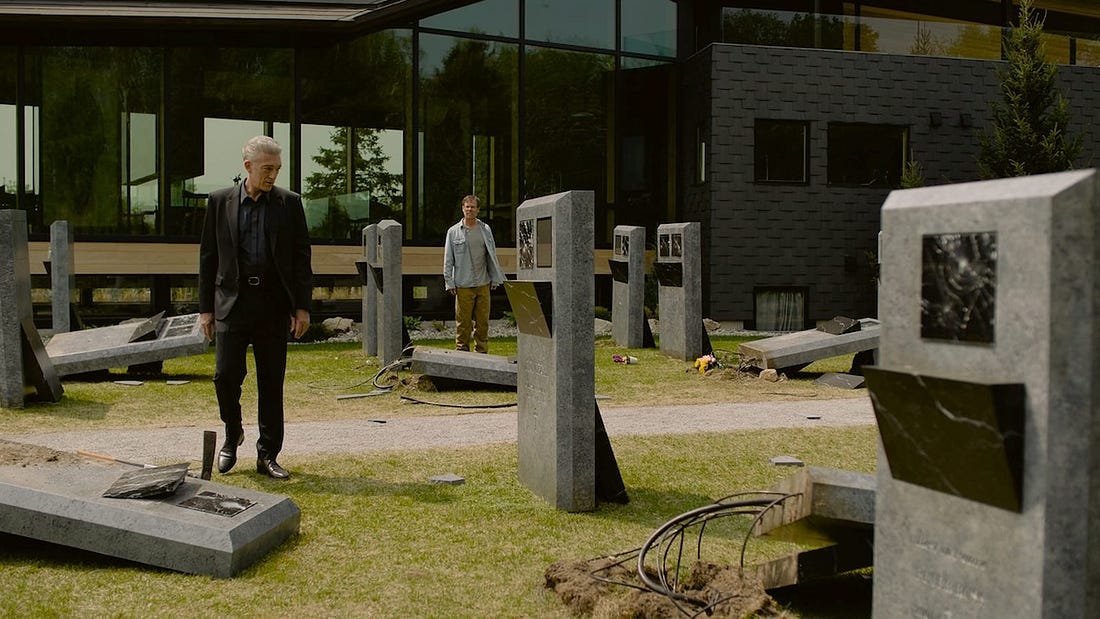Talked to box office analyst and film critic Scott Mendelson, author of the “Inside Scoop” substack, on the podcast this week about the box office so far this year; it was a fun chat, I hope you listen. One thing we briefly touched on that I’d just like to hammer home here has to do with the box office haul for Sinners. Ryan Coogler’s movie, which is quite good, is putting up enormous weekday numbers in its first week of release, and some are suggesting it could drop nearly nothing in its second weekend. Behold the power of positive word of mouth! I knew coming out of the preview screening that this thing was going to kill; on an audience-excitement high, I privately told one group of friends that it might do Oppenheimer numbers, domestically. I would be amazed if it did quite that well ($330 million), but it’s going to easily clear $200 million and make a run at $250 million, I think. Foreign sales are … well, they’re another story. They are, simply, much softer than the domestic box office. I noted this in a tweet, piggybacking on an ongoing and awkward conversation, because the simple fact of the matter is that movies with black leads made by black directors do not tend to do as well overseas as they do in the United States. Here’s what I mean: over the last couple of decades, foreign box office tends to account for 60 to 70 percent of a film’s worldwide haul, while domestic sales tend to account for 30 to 40 percent. This is not universally true (Star Wars films, for instance, have always had a roughly 50–50 split) but it’s close enough to true that the exceptions to the rule jump out as rare. I bring this up because literally every film directed by Ryan Coogler, Jordan Peele, and Ava DuVernay has grossed more at the domestic box office than the foreign box office. (You can see screenshots of the charts here.) You see something similar at play with Denzel Washington’s movies (the only one of the Equalizer films to do more overseas than at home is the most recent one). Will Smith is just about the only black movie star to reverse this trend. This softness overseas prompted some handwringing in the industry trades about Sinners’s potential profitability. But the insane domestic numbers this movie is putting up should quiet that chatter: If it does $250 million domestic it doesn’t really need much from overseas markets. I want to look at this from a slightly different angle, however. First off, as I tweeted, I think one potential takeaway from these stats is that the American film market is markedly less bigoted than the overseas film market. Anyone who has spent much time overseas is likely nodding their head; for all the discussion of race in America, if someone were to, say, throw a banana at a visiting black player on a basketball court (a thing that seems to happen way too frequently in European soccer stadiums) they wouldn’t just get banned from the stadium for life, they’d probably get their asses kicked by the hometown fans. But here’s the second potential takeaway: It is Good, Actually, for American film studios to make movies that appeal primarily to American audiences. Peele’s movies—Get Out, Us, and Nope—have all been critically acclaimed in addition to being commercial successes. Coogler’s movies are routinely in the mid-90s on Rotten Tomatoes despite ranging in genre from comic book blockbuster to indie personal drama to vampire horror-action. (DuVernay’s movies have been more hit and miss, but they can’t all be winners.) We should want Hollywood making movies that are a.) good and b.) appealing to audiences. The reason Hollywood became a driving cultural force in the world is that the rest of the world enjoyed the movies American audiences were enjoying. No one should be surprised that a movie about the blues, race in America, and the Mississippi Delta doesn’t necessarily draw as many eyeballs in Europe and Asia as it does in America. Hollywood studios should still make those movies because eventually the rest of the world may come to recognize the quality they’re missing out on. And even if they don’t? Chasing American dollars is better for the long-term health of the industry than chasing Chinese renminbi. We had some fun on this week’s members-only episode of Across the Movie Aisle with a vampire movie draft. Ben Dreyfuss sat in again and came up with a … weird category. But we let him have his fun. ‘The Shrouds’ ReviewDavid Cronenberg has long been one of our most interesting voices on the intersection of technological advances, the human body, and the potential for damage to the psyche and corpus of society writ large that this intersection represents. Videodrome (1983) nailed the potentially insidious nature of cable and satellite television’s ability to target niche audiences with increasingly deranged content, be it pornographic or political/religious in nature; by that film’s end, the medium has so thoroughly deformed Max (James Woods) that he cannot tell reality from delusion. Or maybe we, the audience, aren’t sure what’s real and what isn’t. That knowledge gap forms the basis of eXistenZ (1999), Cronenberg’s early-internet masterpiece about the ways in which video games can distort and disturb our relationship with reality and perspective. Both for those who play and those who don’t play, it should be noted. The game itself is, after all, just a game; it’s not until anti-gaming activists join the mind-meld of the virtual reality system that all hell really breaks loose. Or does it? Is the whole film just another level of the game, one that ends when the film cuts to black? eXistenZ sits alongside The Matrix as our introduction to the post-truth, post-reality world that mass acceptance of the internet ushered in. The Shrouds, in theaters now, once again sees Cronenberg wrestling with the intersection of technology and the navigation of reality. Literally, in a certain sense: Karsh (Vincent Cassel) drives from his home to his ghoulish GraveTech cemeteries—where mourners can watch their loved ones decompose in real time—in a Tesla, the autopilot navigating him here, there, everywhere. Karsh’s wife, Becca (Diane Kruger), is interred in one of these plots; we see both her literal decomposition in the grave and her figurative decomposition in Karsh’s dreams, her body falling apart as the cancer ate away at her. After vandals destroy the cemetery, Karsh must figure out if they’re some sort of extremist group intent on stopping the expansion of his technology, a foreign power hoping to stop him from learning that the bodies themselves are being used as hubs for espionage by Chinese agents, or personal revenge by former brother-in-law Maury (Guy Pearce), a technologist who helped develop the GraveTech system and a paranoiac convinced that Karsh is sleeping with Becca’s sister and Maury’s former wife, Terry (also played by Kruger). The plot is, frankly, kind of a mess. Or maybe, more generously, a series of red herrings, their pointlessness serving primarily to drive home the idea that none of the schemes being discussed actually mean much in the end. All that matters is the finality of the flesh, the having and the losing of a loved one. That Cronenberg made this in the midst of mourning his own wife, who died from cancer a few years back, is not surprising; this feels like a deeply personal movie. Just as Crimes of the Future (2022) also felt deeply personal, given that it’s a film about an artist uncertain of his place in the world of art in an age of increasing spectacle dumbing everything down. I’ll be honest, The Shrouds didn’t entirely work for me. I do enjoy Cronenberg’s mordant sense of humor, and Cassel, who looks strikingly like Cronenberg himself, frequently reflects the auteur’s quiet amusement at his own predilections and preoccupations and the way they play out on screen. And Lord knows I’m up for a treatise on the dangers of AI’s invasion of our every moment; Maury’s creation of the digital assistant Hunny (also voiced by Kruger) and that program’s insinuation into every element of Karsh’s life as a sort of affection surrogate is deeply insidious. As a piece of storytelling I don’t think it hangs together, the plot less a coherent whole than a series of half-baked notions allowing Cronenberg to pour out his grief. But Cronenberg, 82, has earned the right to be a little self-indulgent, having spent his last five-plus decades messing with our minds’ idea of our bodies. If The Shrouds is the note he chooses to go out on, I don’t think any of us should complain. You’re a free subscriber to The Bulwark—the largest pro-democracy news and analysis bundle on Substack. For unfettered access to all our newsletters and to access ad-free and member-only shows, become a paying subscriber. We’re going to send you a lot of content—newsletters and alerts for shows so you can read and watch on your schedule. Don’t care for so much email? You can update your personal email preferences as often as you like. To update the list of newsletter or alerts you received from The Bulwark, click here. |





